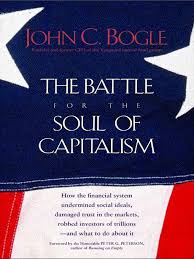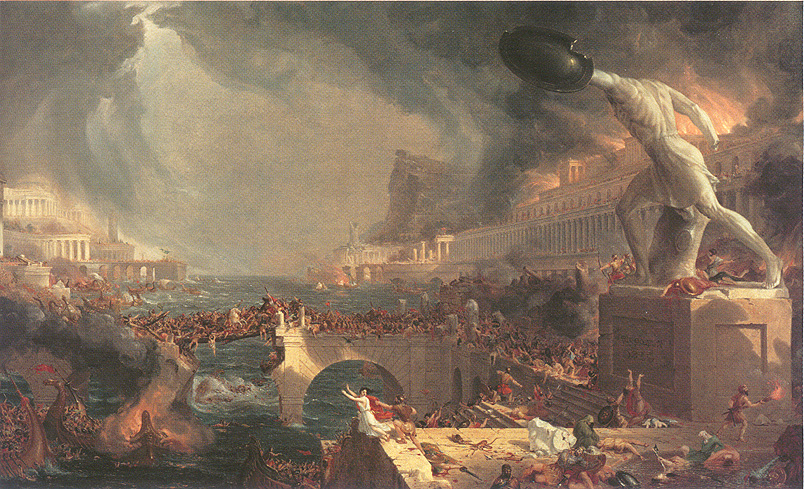brucefan
EOG Dedicated
Destination Collapse
[FONT=Georgia, Times New Roman, Times, serif][FONT=Times New Roman, Times, serif]by Michael S. Rozeff[/FONT][/FONT]
[FONT=Georgia, Times New Roman, Times, serif][FONT=Georgia, Times New Roman, Times, serif]by Michael S. Rozeff[/FONT][/FONT]
<!-- AddThis Button BEGIN --><SCRIPT type=text/javascript>var addthis_pub = "egarris";</SCRIPT><SCRIPT src="http://s7.addthis.com/js/152/addthis_widget.js" type=text/javascript></SCRIPT><!-- AddThis Button END -->
<!-- Copyright 2001-2002, Clickability, Inc. All rights reserved.--><SCRIPT language=javascript1.2 src="http://a449.g.akamai.net/7/449/1776/000/button.clickability.com/10/button_1/button.js"></SCRIPT><SCRIPT language=JavaScript> window.onerror=function(){clickURL=document.location.href;return true;} if(!self.clickURL) clickURL=parent.location.href; </SCRIPT><NOBR>
 </NOBR>
</NOBR>
<!--/* Start OpenX Javascript Tag v2.4.4 */--><SCRIPT type=text/javascript><!--//<![CDATA[ var m3_u = (location.protocol=='https:'?'https://adserve.lewrockwell.com/www/delivery/ajs.php':'http://adserve.lewrockwell.com/www/delivery/ajs.php'); var m3_r = Math.floor(Math.random()*99999999999); if (!document.MAX_used) document.MAX_used = ','; document.write ("<scr"+"ipt type='text/javascript' src='"+m3_u); document.write ("?zoneid=5"); document.write ('&cb=' + m3_r); if (document.MAX_used != ',') document.write ("&exclude=" + document.MAX_used); document.write ("&loc=" + escape(window.location)); if (document.referrer) document.write ("&referer=" + escape(document.referrer)); if (document.context) document.write ("&context=" + escape(document.context)); if (document.mmm_fo) document.write ("&mmm_fo=1"); document.write ("'><\/scr"+"ipt>");//]]>--></SCRIPT><SCRIPT src="http://adserve.lewrockwell.com/www/delivery/ajs.php?zoneid=5&cb=36259312106&loc=http%3A//www.lewrockwell.com/rozeff/rozeff286.html&referer=http%3A//ronpaulnews.net/" type=text/javascript></SCRIPT><!-- AddThis Button BEGIN --><SCRIPT type=text/javascript>var addthis_pub = "egarris";</SCRIPT><SCRIPT src="http://s7.addthis.com/js/152/addthis_widget.js" type=text/javascript></SCRIPT><!-- AddThis Button END -->
<!-- Copyright 2001-2002, Clickability, Inc. All rights reserved.--><SCRIPT language=javascript1.2 src="http://a449.g.akamai.net/7/449/1776/000/button.clickability.com/10/button_1/button.js"></SCRIPT><SCRIPT language=JavaScript> window.onerror=function(){clickURL=document.location.href;return true;} if(!self.clickURL) clickURL=parent.location.href; </SCRIPT><NOBR>
<SCRIPT type=text/javascript><!--// <![CDATA[var ox_swf = new FlashObject('http://adserve.lewrockwell.com/www/delivery/ai.php?filename=mm_300x250_dollarplane.swf&contenttype=swf', 'Advertisement', '300', '250', '8');ox_swf.addVariable('clickTARGET', '_blank');ox_swf.addVariable('clickTAG', 'http%3A%2F%2Fadserve.lewrockwell.com%2Fwww%2Fdelivery%2Fck.php%3Foaparams%3D2__bannerid%3D58__zoneid%3D5__cb%3Da2aef6f94e');ox_swf.addParam('allowScriptAccess','always');ox_swf.write('ox_449400644c37b17bb0143ca8f42e7a08');// ]]> --></SCRIPT>
<NOSCRIPT></NOSCRIPT>
<!--/* End OpenX Javascript Tag v2.4.4 */-->[FONT=Times New Roman, Times, serif]The U.S. government and the Federal Reserve (FED) are pursuing reckless policies. The scale of their budget and financial mismanagement is so large that they will almost surely cause social and economic discontinuities unless they are slowed, halted, or impeded by factors that counteract them. They are saddling us with huge fiscal deficits and huge debts. They are transferring huge amounts of wealth. They are inflating the money supply without any restraint. States that have done this in the past have suffered devaluations, capital flight, economic disruptions, and severe economic difficulties. The affected nations have suffered impoverishment and loss of wealth. Before these dislocations ended, governments collapsed, currencies collapsed, economies collapsed, and people took to the streets. [/FONT]
[FONT=Times New Roman, Times, serif]The U.S. economy comprises the millions upon millions of economic activities of hundreds of millions of persons. It is hard to imagine this being disrupted, because its natural condition is to function smoothly. This is what we see, experience, and take for granted. The economy is still functioning around us although at a reduced scale. It takes large and unnatural forces to blow an economy apart, and that is what the government and the FED are setting in motion.[/FONT]
[FONT=Times New Roman, Times, serif]Since government rulers and bureaucrats have chosen to make careers in government, it is logical that they believe in government. It is logical, even if incorrect, that they blame the free-market for shocks to the economy that emanate from government; and it is logical, even if incorrect, that they overvalue government and undervalue markets. They are ordinarily loathe to admit that virtually all the bounty, welfare, and wealth we have comes from free-market activity. Their actions, despite their occasional free-market rhetoric, belie such a belief. They are all too ready to blame the free market and praise government.[/FONT]
[FONT=Times New Roman, Times, serif]It is possible that they will change course. It is possible that domestic and foreign political and social forces will arise that will make them change course. Blowing up an economy takes time, and it is possible that they themselves will observe what is happening and alter their policies. Should there be a groundswell of opposition to the present policies and should it appear that opposition political forces are gaining because of it, the situation can change. These and other like possibilities cannot be ruled out. At present, little is happening to suggest that they count for much; but we can be alert to these scenarios.[/FONT]
[FONT=Times New Roman, Times, serif]It is far more likely that our rulers will make matters worse and persist in their deadly course. They would not be where they are today if they did not believe in their own power to lead and in the power of government to correct what they see as the ills of the free market. The firmness with which they have publicly committed themselves to a series of large budget deficits and to a monetary expansion of unprecedented size, and the fact that they have only just embarked upon this course, and the fact that they seem to believe strongly that they are doing the right thing, all suggest that they will stay on their chosen course. This is a course whose destination, unbeknownst to them, is collapse. They are gambling on a different outcome, and it is a reckless and ignorant gamble that throws caution to the winds. It was always irrational for Americans to assign the fate of this great nation to a mere handful of souls with inordinate power, such as they possess over nuclear weapons and an outsized military. It is no less irrational to consign our economic fates to a few such powerful men and women. It is irrational to seek possible gains while staring at much higher possible losses, and that is what they are doing. They are mortgaging and risking the country?s future, which involves a huge possible loss, in a futile attempt to arrive at a sound economy with more jobs and production, which involves a far smaller gain. They are making this stupid gamble when a sound economy can be had merely by waiting and letting those who have losses bear them.[/FONT]
[FONT=Times New Roman, Times, serif]To understand why their policies are leading to collapse, we need a basic understanding of how a market economy functions and why recessions and depressions in business and economic activity occur. Our rulers do not have this understanding. That is one reason why they are choosing the wrong policies. Their basic error is to think that the free-market economy is unable to correct itself when exposed to shocks. They think that government can, without doing any harm, help the free-market economy to stay on a stable path. The free market has no need whatever for this function of government. Government should never have taken on this function in the first place.[/FONT]
[FONT=Times New Roman, Times, serif]In a natural or unmanipulated or free-market economy, the private participants or actors make decisions on their own. When there are billions of decisions that have to be made and re-made continuously, there is really no other possible method that is efficient and effective at producing greater wealth and welfare except decentralized decision-making and choice. The coordination of what appears to be a free-for-all is achieved through a system of prices. By looking at prices, each of us decides what to do based upon what we want and what it costs to get it. It is a system that encourages advances in technology and know-how and ways to cope with risks and uncertainties.[/FONT]
[FONT=Times New Roman, Times, serif]The liberty to make our own choices results in a system that is highly flexible and readily adapts to unanticipated changes.[/FONT]
[FONT=Times New Roman, Times, serif]Our economic choices and decisions fall into distinct and basic conceptual categories. We decide how to allocate our time between working and not working, which is a labor-leisure choice. We decide how to allocate our time among various kinds of work. We decide how to allocate our income between what we consume and what we save. We decide how to allocate the time spent and amount to be consumed among a variety of consumption goods and services. We decide how to allocate savings among a variety of risky activities and investments. We decide how to allocate time and resources to entrepreneurial activities. We decide how to finance or fund various activities. [/FONT]
[FONT=Times New Roman, Times, serif]Our lives have their ups and downs and so does an economy. A free market economy can experience booms, recessions, and depressions. The future is not known with certainty. Negative and positive shocks to the economy can occur, and then there have to be adjustment periods to get back to normal. The economies of yesteryear that depended heavily on commercial farm crops experienced slowdown and difficulties when the crops failed, because crops were a large part of a relatively undiversified economy. Economic activities that were geared to farm production might also decline for a time. In Genesis 41, Joseph recommends to the Pharaoh to store grain to overcome seven years of famine lying ahead. If a new invention (like the internet) ignites a boom in activities that ultimately find no ready markets, the economy might show unusual activity for a while followed by a period of slowdown and adjustment to the reality.[/FONT]
[FONT=Times New Roman, Times, serif]A free market has to and does coordinate current and future production against future unknown demands, supplies, and shocks; and it has to and does find ways to alleviate the negative effects of shocks. People generally accomplish this by planning, forecasting, conservative practices, saving, hedging, insuring, and diversifying. There are countless ways, each tailored to particular circumstances. When a man has a backup trade, he is hedging against being laid off in his main occupation. When a family saves, it is hedging against loss of income. When family members help one another in hard times, they are insuring each other. When a business is conservative in obtaining credit and expanding, it is hedging against possible stringent business conditions. When a person diversifies investments, he is hedging against loss in one part of the portfolio. When a business controls inventories, it is managing the risk of shocks to the business.[/FONT]
[FONT=Times New Roman, Times, serif]Government and the FED are institutions that generate economic shocks, after which they claim that they have the means, and only they have the means, to ameliorate their effects. This is more than ignorance. It is a lie. And because these two institutions have unique powers that affect the entire economy, they generate large and pervasive shocks.[/FONT]
[FONT=Times New Roman, Times, serif]In the modern booms that lead to recessions in economic activity, the government and FED act in ways to cause private economic actors to maintain rates of consumption and investment and types of investment (as in housing and mortgages) that are too high and too dependent on growing debt. They induce people to depart from their unhampered or free market demands. This is the shock to the economy. To get people on a continuing basis to consume and invest at a higher rate, the central bank has continually to maintain a rate of growth of money that is higher than what people ordinarily demand. This shock raises and distorts the price level, raises and distorts productive activity, and raises and distorts asset prices. It lowers risk premiums and induces speculation. It distorts trade patterns, capital flows, balances of payments, and exchange rates. The government and the FED push economic decisions further and further away from what people would decide if the credit growth had not been manipulated by the central bank.[/FONT]
[FONT=Times New Roman, Times, serif]Eventually the shocks induce poor decisions in the economy, such as building too many large houses or office buildings or taking on too much debt that cannot be repaid. At that point, observers speak of undue speculation. They recognize that some assets are being overvalued. They can see obvious irrationalities creeping in when they see people making decisions to produce very low-return projects that people do not ordinarily want or can afford. To those making these decisions, they seem rational because they expect the government and FED shocks to continue. Others realize that they will not go on forever, and that the decisions will eventually look very wrong when the government?s support of these activities lessens or draws to a close.[/FONT]
[FONT=Times New Roman, Times, serif]When distortions in economic activity become painfully obvious to large numbers of persons in the economy and to those in government and the FED, and when the repercussions of these distortions affect the political futures of the rulers and the banks that the FED supports, then the boom?s days are numbered. A government can underwrite the laying of railroad tracks indefinitely, but when it becomes clear tracks are being laid to nowhere, then even the government understands that it is not getting a political return on its investment. It will do better for itself to subsidize some activity that buys more votes. Investors will realize that the railroads have amassed large debts and that the traffic on roads to nowhere will not generate enough cash flow to pay off these debts. The railroad boom will falter.[/FONT]
[FONT=Times New Roman, Times, serif]Our government had ways to subsidize housing with Fannie Mae and other like agencies. They came to grief. The boom ended. Yet even after the private market has nixed this activity and even after banks and others have incurred tremendous losses on extending mortgages on no equity to people who could not pay them off, the government at this moment still is underwriting even more mortgages through these same agencies so that Americans lay down even more single-family houses. It still sees political mileage in pushing mortgages. The FED is cooperating to an amazing extent. It has a program to buy up $1.25 trillion of mortgage-backed securities. The private economy sees the irrationality in subsidizing the building of more houses at this time. The politicians in government, who face a different set of political incentives, do not. Not only that, our rulers in government think that this is one of the ways to end the recession.[/FONT]
[FONT=Times New Roman, Times, serif]The recession is the attempt by the economic actors to get back to a desired and sane economy, that is, a desired set of activities that are producing what people want to consume. After things have gone too far, people want to pursue the real and undistorted activities, despite the increased money and credit and despite the government?s manipulations. As they attempt to accomplish this, many prices start to adjust back to desired levels. This sets off an economic re-adjustment. Even the central bank at the end of the boom may itself participate in adjusting its money manipulation back to normal levels and rates. This occurs when it observes that consumer prices are rising too rapidly to suit its notions and goals.[/FONT]
[FONT=Times New Roman, Times, serif]The depression in activity goes on while the re-adjustments occur. These include liquidation, elimination, and writing-off of bad debts. They include bankruptcies. They include re-organizations of firms and shifting of assets to new uses and new hands. They include unemployment while people seek new work and re-train themselves. They include hardship, turmoil, and inconvenience. The adjustments generally take a few years, depending on the recession?s severity and on the factors that interfere with them. [/FONT]
[FONT=Times New Roman, Times, serif]Two factors that typically interfere with the private economy?s adjustments are government actions and central bank actions. Both the government and the central bank may try to restore the status quo ante, even though it involved distortions and brought on the recession. They may try to generate a new set of economic activities and jobs that again involve activities that private actors would not choose of their own accord. They attempt to stimulate a recovery that has new or restored distortions in prices and in how people allocate their time, their effort, their incomes, and their capital over risky activities, and how they engage in their entrepreneurial choices. They do this in the crudest possible way using large-scale macroeconomic policies that do nothing to rectify the imbalances that people in the economy are trying to correct.[/FONT]
[FONT=Times New Roman, Times, serif]
 A government stimulus program is an effort to thwart the recession. This sounds good, but it is bad, when we remember that a recession is what happens when the private actors in the economy attempt to abandon uneconomic activities and restore sound ones. A government stimulus program is an effort to thwart the private economy?s adjustment back to a normal economy.[/FONT]
A government stimulus program is an effort to thwart the recession. This sounds good, but it is bad, when we remember that a recession is what happens when the private actors in the economy attempt to abandon uneconomic activities and restore sound ones. A government stimulus program is an effort to thwart the private economy?s adjustment back to a normal economy.[/FONT][FONT=Times New Roman, Times, serif]The massive government and FED stimulation that we are now being subjected to cannot and will not produce a sound and sane economy. The greater the stimulus, the more the free market is prevented from working and restoring the economy to normalcy. Even before the distortions that the government and the FED caused have been removed, they are resurrecting and supporting them, or at least trying to. They are layering new distortions atop the old. They are distorting their own balance sheets to such a degree that they risk collapse of government and currency, economy and social order. Their operation and program deserves the name Destination Collapse.[/FONT]
[FONT=Times New Roman, Times, serif]April 1, 2009[/FONT]
[FONT=Times New Roman, Times, serif]Michael S. Rozeff [send him mail] is a retired Professor of Finance living in East Amherst, New York[/FONT]


















 .
.






